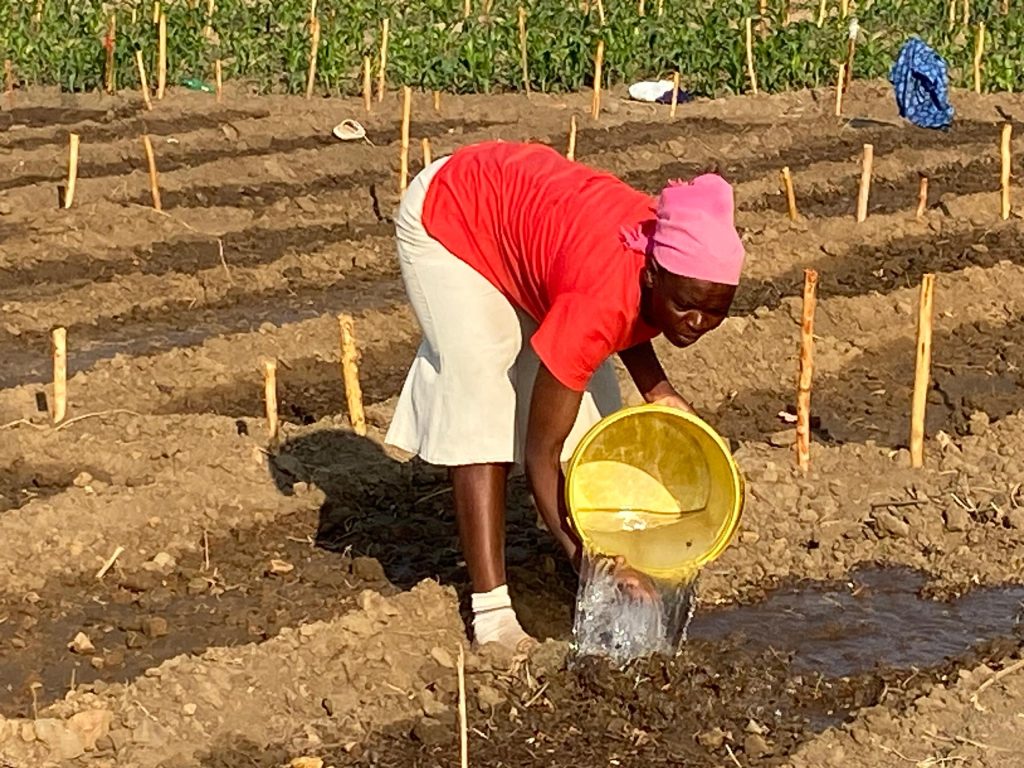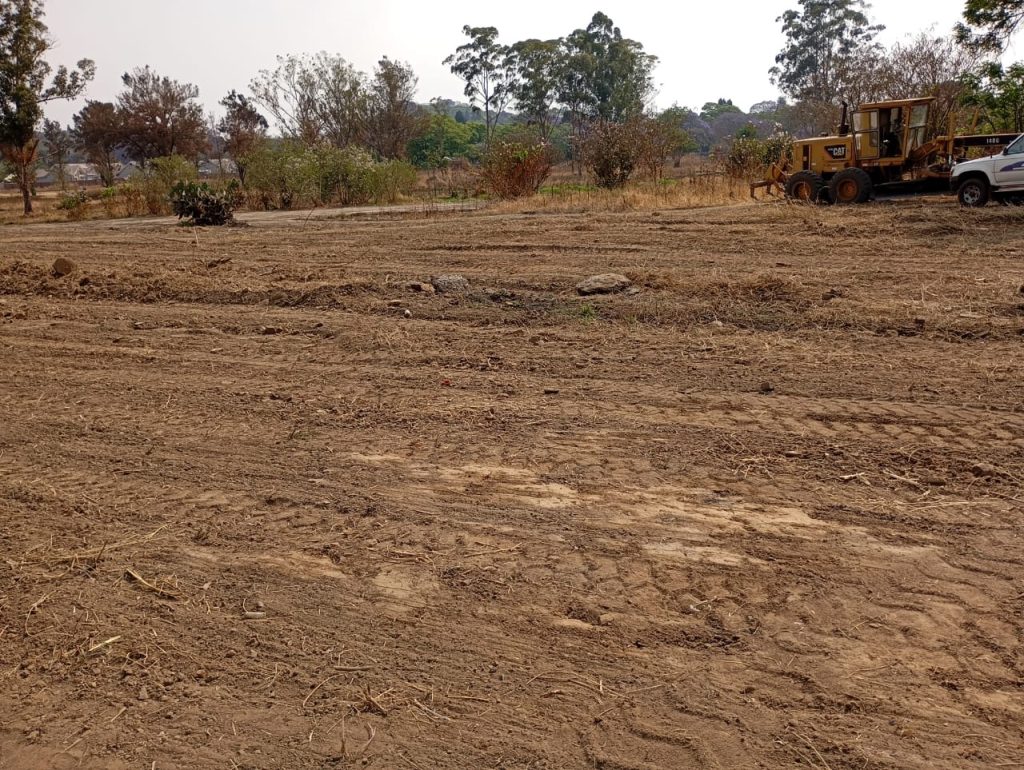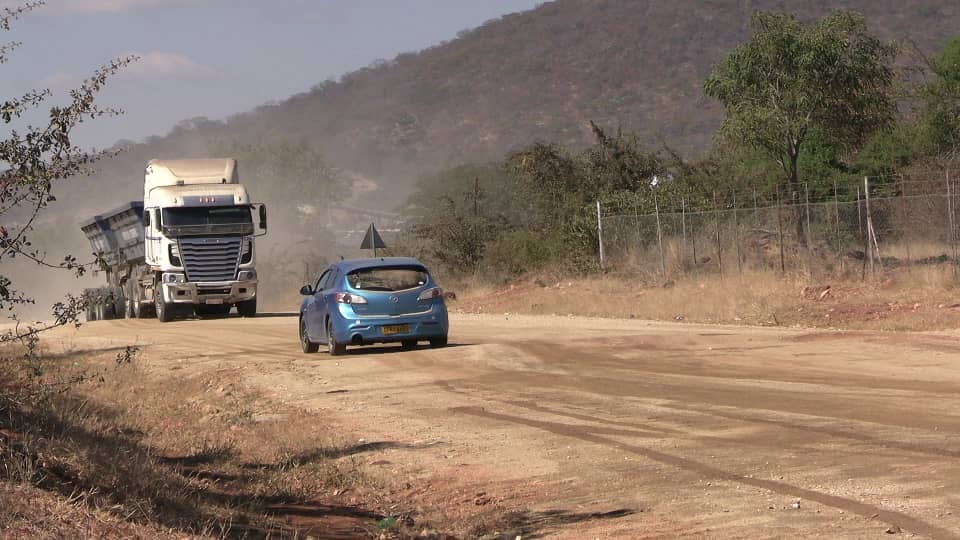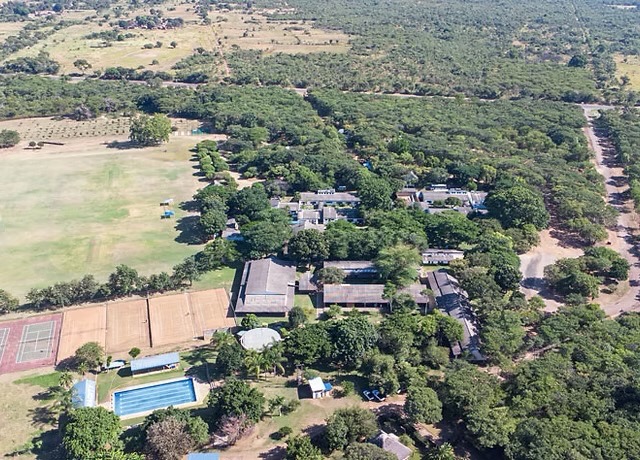By Marshall Bwanya
CHECHECHE, Manicaland — When 53-year-old Lainah Chitunguru lost her right hand to a crocodile attack while fetching water from the Save River a decade ago, her ordeal captured the desperation of families in drought-stricken Checheche, south-eastern Zimbabwe.
For years, she and other villagers risked crocodile-infested rivers and muddy ponds for water.
Now a solar-powered borehole stands a few metres from her home, a lifeline as Zimbabwe faces one of its harshest droughts in recent memory.
“It was God’s grace that made me survive.
“Life has been hard, but now we finally have clean water nearby, and we are safe,” she said.
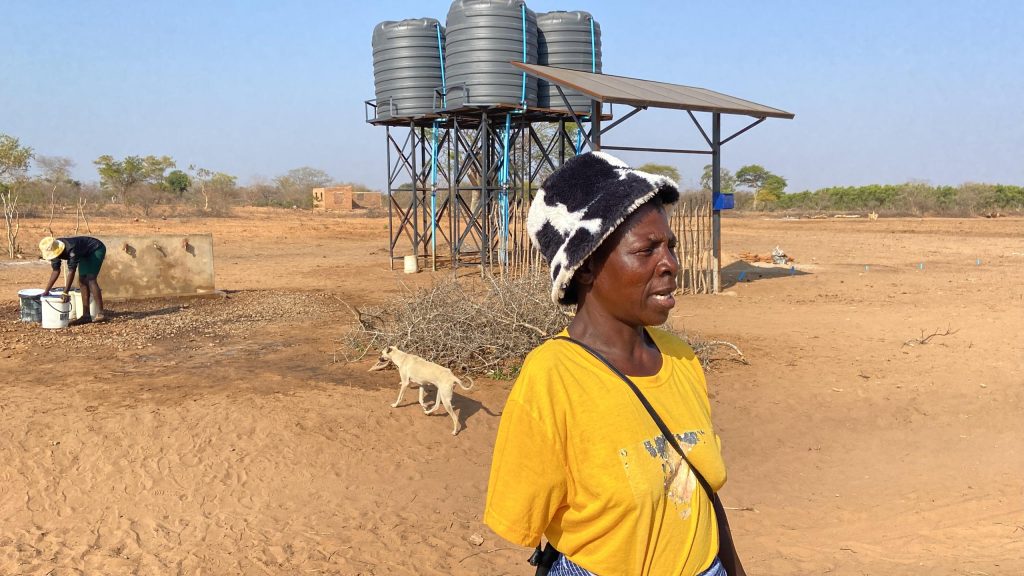
Across Zimbabwe’s 10 provinces, the Presidential Borehole Scheme (PBS) is reshaping rural life, offering hope in a season of extreme dryness that has left crops shrivelled and rivers dust-dry.
El Niño’s regional toll
The 2023–24 El Niño weather pattern has scorched fields and depleted reservoirs across southern Africa.
Zimbabwe, Zambia, Malawi, Mozambique, Namibia and Botswana have all suffered severe crop losses, forcing several governments to declare drought disasters.
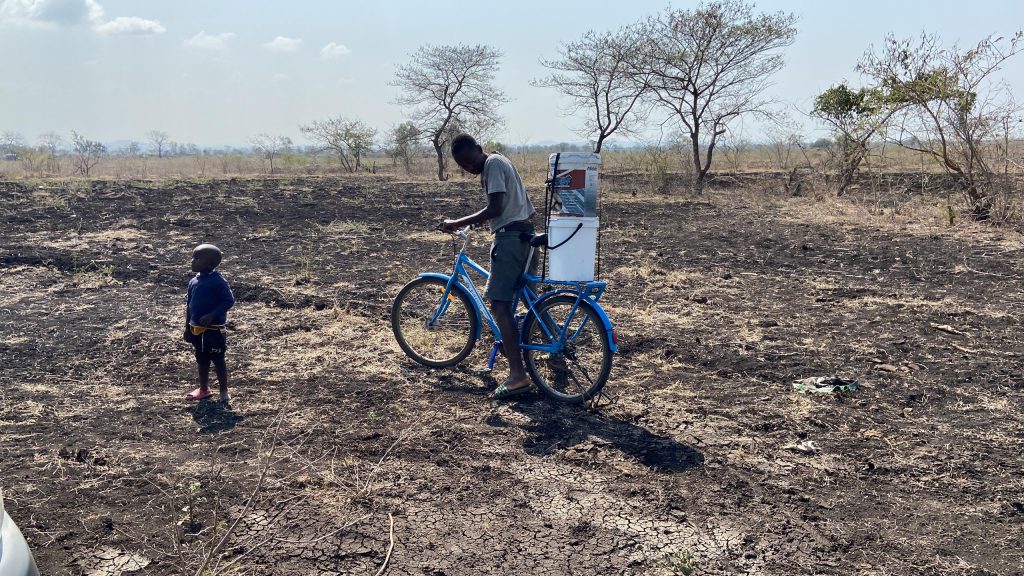
In August, the Southern African Development Community (SADC) Executive Secretary, Elias Magosi, said that 17 percent of the region’s population – about 68 million people – were in need of assistance.
The UN World Food Programme, on the other hand, warns that hunger will deepen into 2025, especially among women and children.
In Zimbabwe, where most rural families depend on rain-fed agriculture, the drought has devastated maize harvests and left many communities without reliable water.
Marginalised communities hit hardest
In districts such as Buhera, Chiredzi, Nkayi, Lupane and Beitbridge, residents say traditional wells and rivers have run dry.
Women and girls, often tasked with fetching water, are forced to walk long distances to unsafe sources, facing exhaustion and attacks from wild animals.
“Before the borehole, I used to leave home before sunrise and return at midday.
“Now we draw water close to our homes and can spend time farming and caring for our children,” said Loveness Dhliwayo from Chipinge.
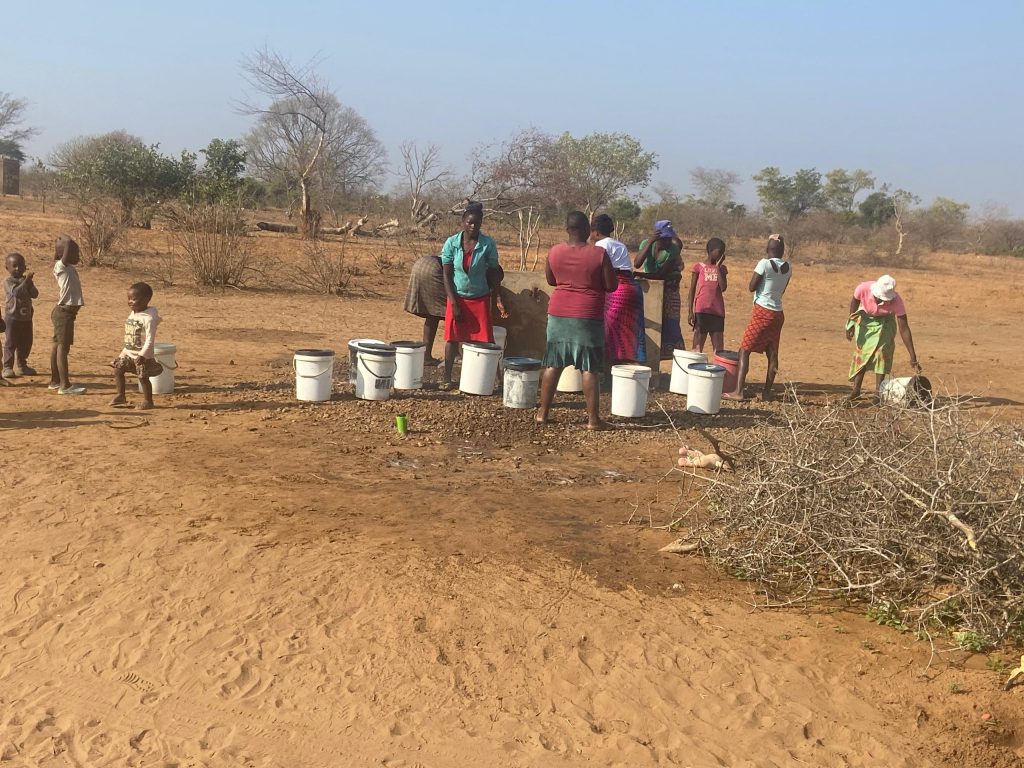
A national push for resilience
Launched under President Emmerson Mnangagwa’s pledge to “leave no one and no place behind,” the PBS is managed by the Zimbabwe National Water Authority (ZINWA) and implemented with private partners including Prevail Group International (PGI).
Thousands of solar-powered boreholes have been drilled near homes, clinics and schools to secure year-round water.
Paul Tungwarara, PGI chairperson, said the programme was built to restore dignity and drive growth.
“The Presidential Borehole Scheme and village business units have helped marginalised communities in drought-hit areas become self-sufficient and commercially active,” he said.
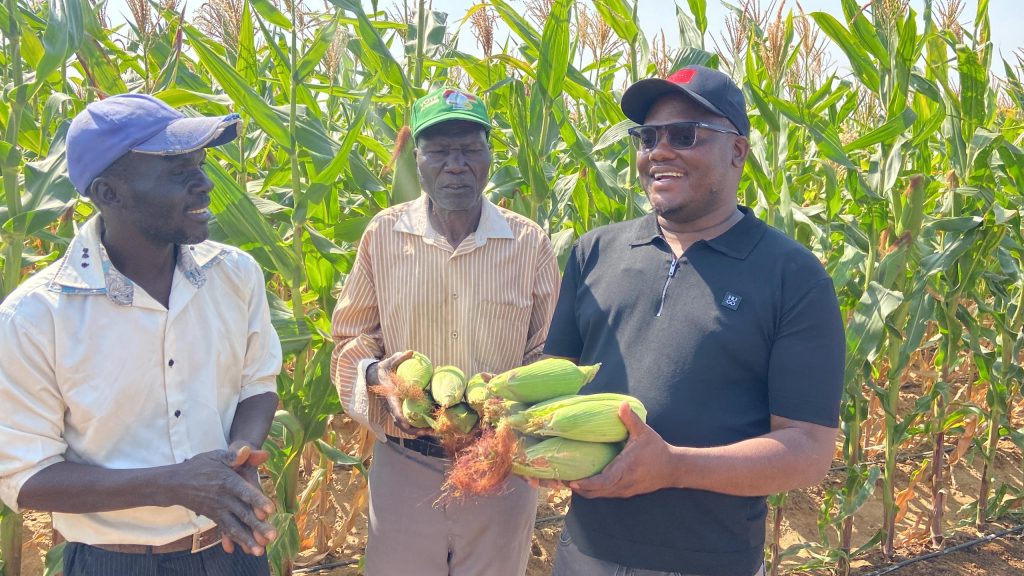
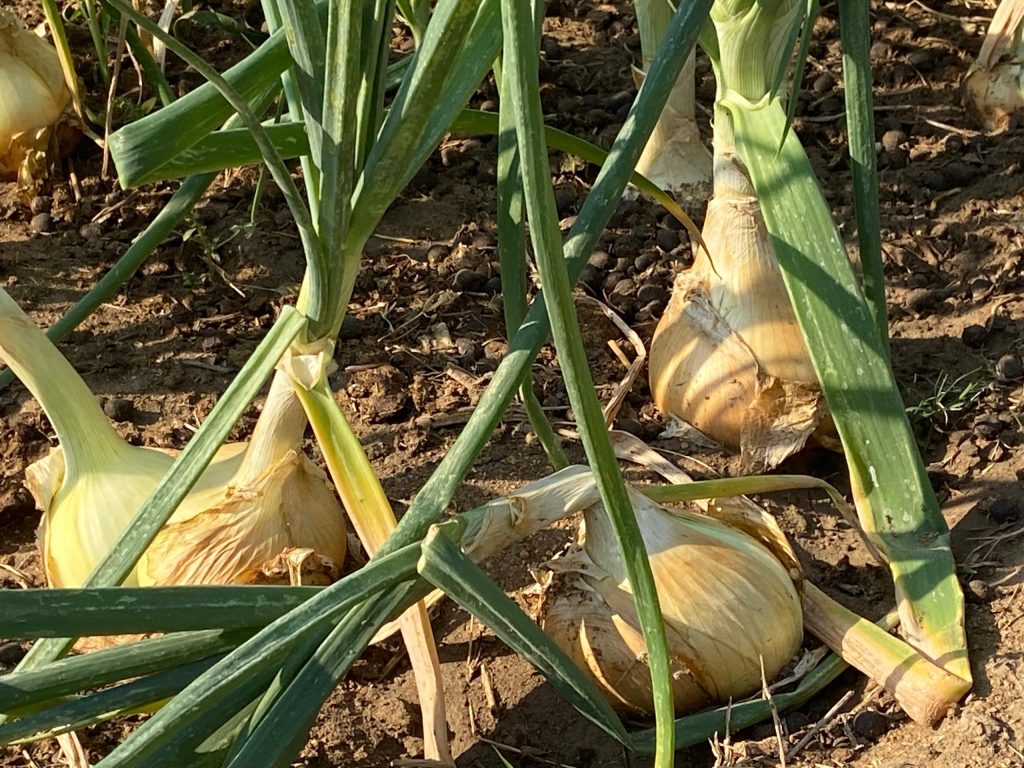
Women driving recovery
Reliable water is transforming livelihoods, particularly for women who once bore the daily burden of water collection.
In the communal lands of Garanyemba Village, Gwanda, Matebeland South, the scheme is now transforming the lives of countless villagers, enabling them to establish sustainable livelihoods and mitigate the effects of the drought.
Nozipho Sibanda, a small-scale business owner in Garanyemba Village, Gwanda District highlighted the economic benefits of the borehole scheme, stating: “The reliable water supply has allowed me to expand my business.”
“I now have a thriving vegetable garden, which I sell to local shops and restaurants.
“The income I generate has helped me to support my family and invest in my business,” she said.
The impact of the borehole scheme is evident in the testimonies of villagers who have directly benefited from the initiative.
Bathabile Tshuma, a resident of Nkedile village, Mangwe District, expressed her gratitude, stating: “Before the borehole, we struggled to access clean water, especially during the dry season.”
“Now, we have water for drinking, cooking, and even for our livestock. “We can also grow vegetables in our gardens, which has improved our diet and provided us with additional income,” she said.
Tshuma said her experience of climate change induced droughts have shown that women and children are the most affected by water challenges and they were happy with how the PBS was transforming their lives.
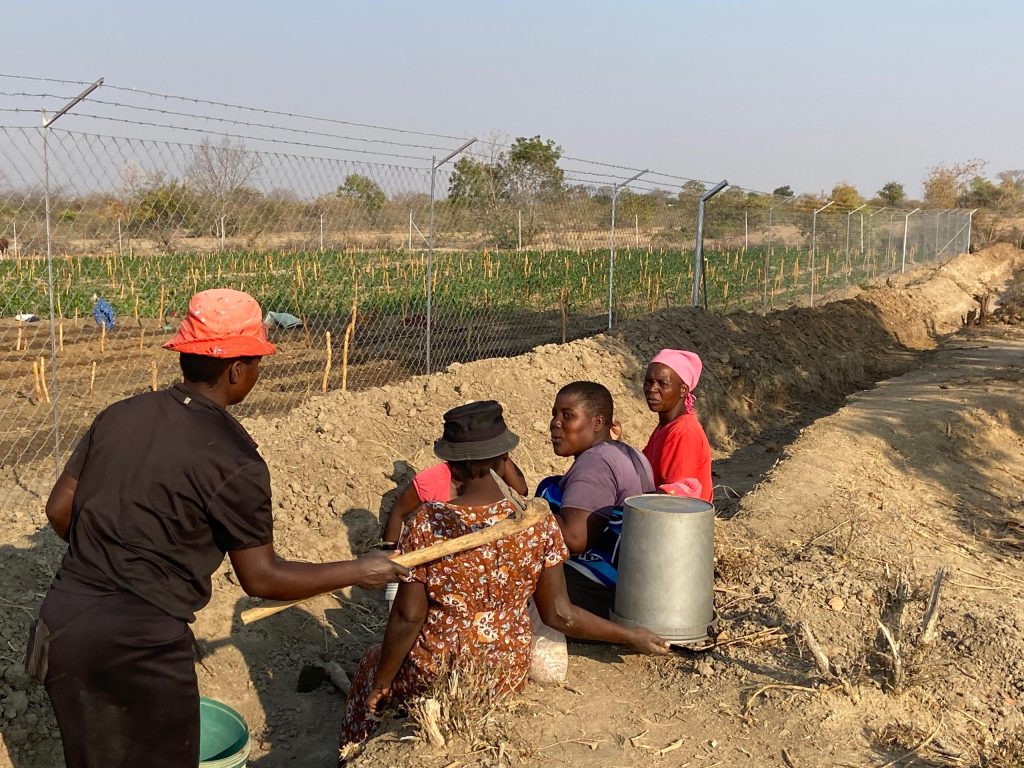
PBS has not only alleviated the suffering caused by the drought but has also empowered rural communities to take control of their destinies.
Daisy Tariro Dondo, PGI’s marketing executive, said the scheme ensures inclusivity.
“Clean water has empowered women and youth to establish village business units and strengthen local economies,” she said.
Access to nearby safe water also reduces gender-based risks linked to long walks for water, allowing girls to stay in school and women to pursue income-generating work.
Schools turning green
At Marega Primary in Checheche, Mudanda Secondary, and Murambinda B High in Buhera, boreholes now irrigate gardens where pupils practise horticulture under Zimbabwe’s Education 5.0 curriculum, which promotes hands-on skills.
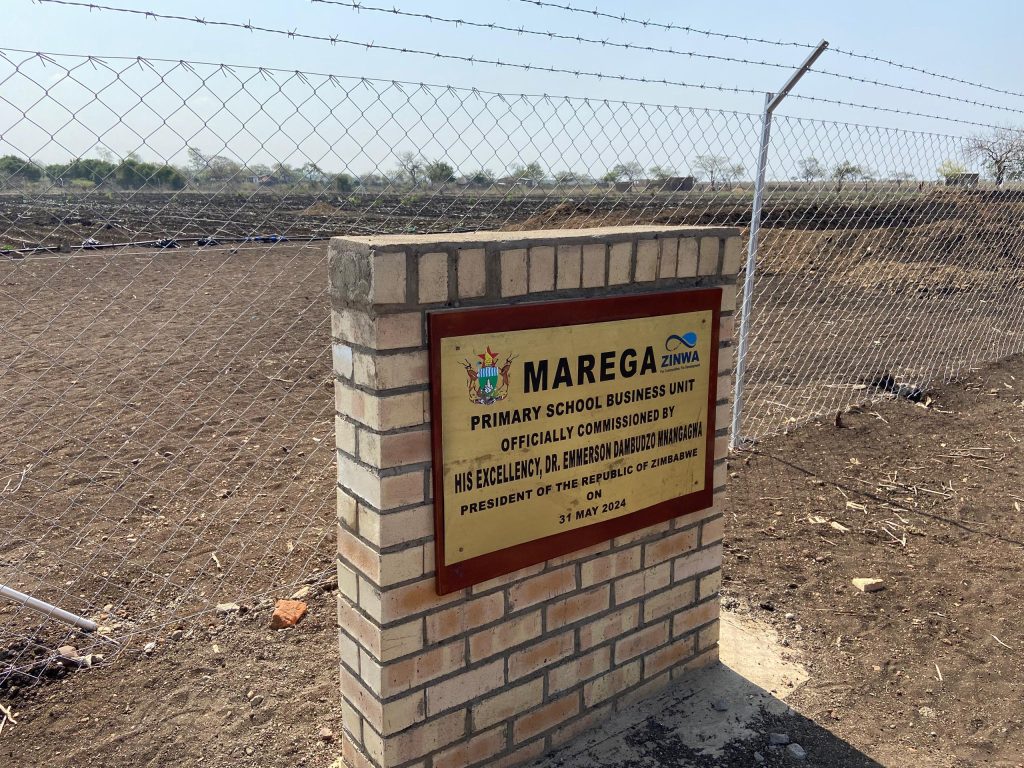
“Our learners are being trained to be job creators rather than job seekers,” said headteacher Ndakaitei Mangwende.
At Murambinda B, acting head Dennis Garabha said a one-hectare drip-irrigation project sustains both the school and nearby households.
“We planted maize, tomatoes and vegetables which are almost ready for harvest,” he said.
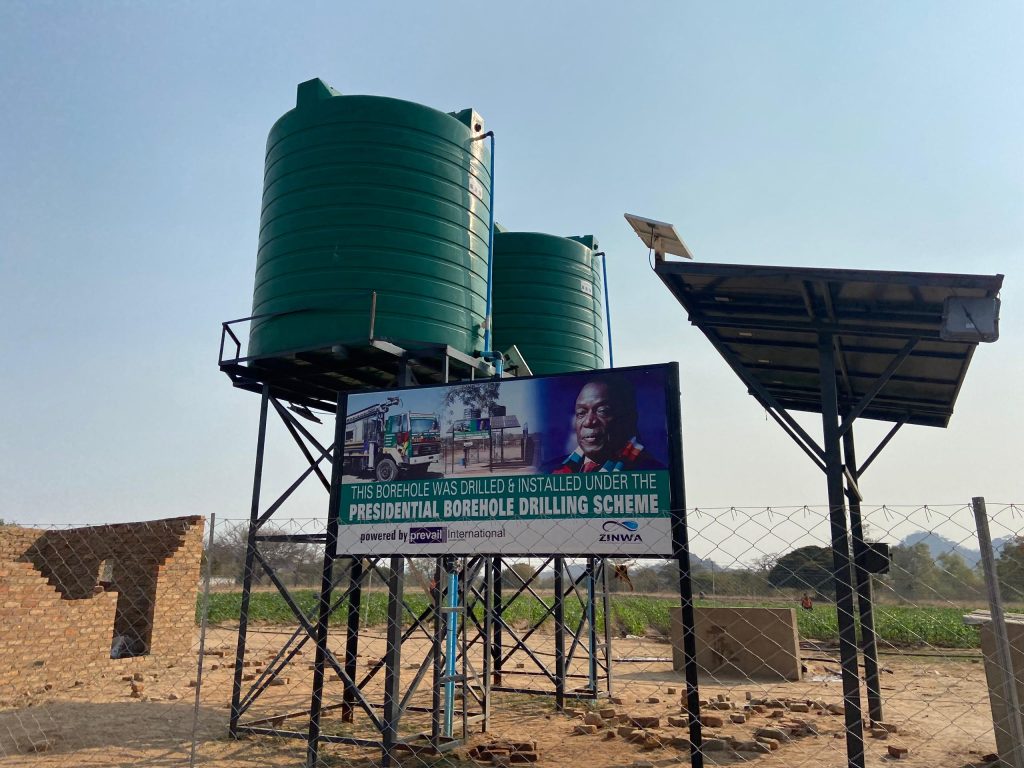
Communities uniting around water
In Chiredzi, community elder Samson Munorwei said the boreholes have strengthened solidarity.
“It has brought us together. We share knowledge and resources, our incomes have increased, and we are investing in our future,” he said.
Such cooperation, villagers say, is key to weathering the climate crisis that has repeatedly eroded their livelihoods.
A model for climate resilience
The PBS offers a glimpse of how local infrastructure can mitigate climate shocks.
Each borehole, powered by solar energy, provides a sustainable water source for households, livestock and small-scale irrigation, reducing dependence on erratic rainfall.
Tungwarara said the model could be expanded across Zimbabwe’s drought belts.
However, experts caution that sustainability hinges on maintenance funding, community ownership and climate-resilient farming support.
Still, the benefits are visible.
In districts like Buhera and Beitbridge, farmers who once relied solely on rain are now planting vegetables and maize year-round, selling produce to nearby towns.
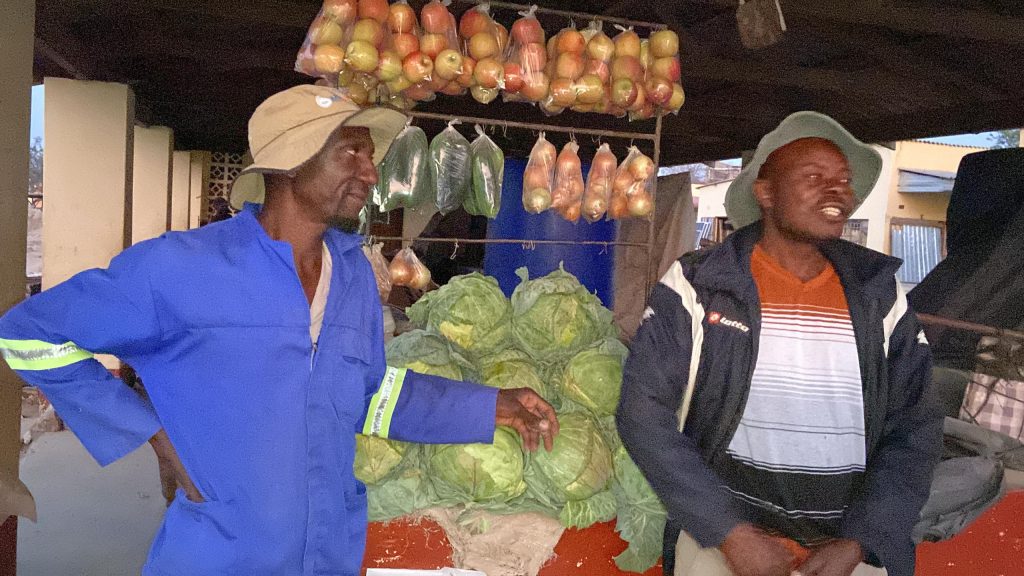
For Chitunguru, the hum of the borehole pump outside her home has replaced the fear that once shadowed every trip to the river.
Children now play safely as clean water flows nearby.
“Life has been hard for us.
“But now we finally have water, and hope,” said Chitunguru.
As El Niño’s heat bears down on southern Africa, Zimbabwe’s rural borehole programme stands out as a modest but vital shield against a changing climate, one that may help its driest communities endure the next drought to come.
